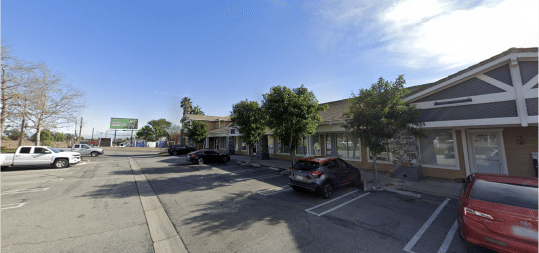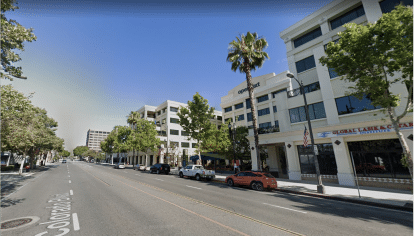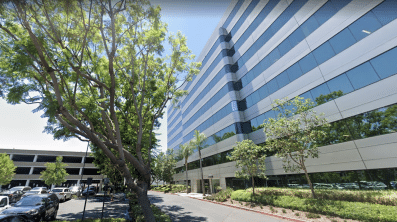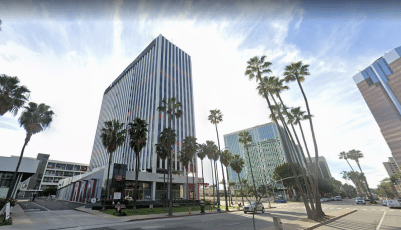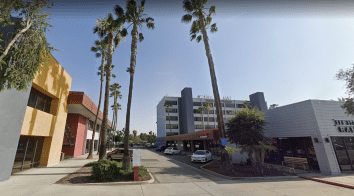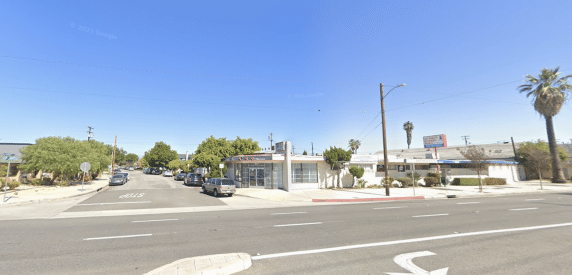
When you or a loved one has been arrested, one of the first decisions you must make is whether or not to bail out. Posting bail to get out of police custody could be beneficial to you or your loved one because you are more capable of building a more aggressive defense with the help of your attorney when you get out of jail before trial.
We at Cali Bail Bonds have a reputation for being dependable, innovative, and committed to assisting you or a loved one. We pride ourselves on helping families in our community in Pacific Palisades in times of need. We have certified, competent, skilled, and local bail agents who can assist you with the bail process.
According to the California Criminal Justice System, bail is referred to as the money that has to be posted with the court for an offender to be released from custody. It's a way of guaranteeing that the offender appears before a judge when mandated.
In California, individuals can't be held on bail only because they are not able to pay; there has to be probable cause to believe that imprisonment is essential to safeguard public safety. Only persons arrested for major or violent crimes are held on bail in Los Angeles County. Everybody else can be let go on their own recognizance. Some offenders may be subjected to further conditions, such as surrendering their firearms or abstaining from the use of drugs and alcohol.
You do not have to post bail if the judge discharges you on your own recognizance. You agree to appear at your court proceedings. However, the judge may refuse you the opportunity to post bail in particular instances in relation to certain charges. In the majority of cases, however, bail is required.
The estimation of bail in Los Angeles County is partially dependent on a bail schedule devised by Los Angeles County judges. The said schedule includes a list of each crime and the bail amount associated with it. In the course of the booking procedure, the police will decide the appropriate bond amount based on the offense being charged.
The prosecutors may increase or lower the amount of bail put by the police after reviewing your case. Prosecutors can pursue a bail deviation. This is a petition for a larger amount of bail when handling a criminal they believe is potentially dangerous.
Ultimately, bail is set based on the bail schedule, the accused's degree of threat to the public, and whether or not the offender is considered a flight risk. Notices to appear before a judge are commonly served instead of bail in minor cases. If a person convicted of a misdemeanor refuses to sign the citation and pledge to attend court, the authorities may detain them and set his or her bail. It must be noted that owing to a change in circumstances, bail may be reduced.
If you've been arrested, a family member or friend can look at the bail schedules or ask a bondsman to do so. If the charge is minor, like a DUI with no injuries or significant destruction of property, you will be released without bail after being arrested. However, if your charge is listed on the bail schedule, the jail will ask for payment of the bail sum or the posting of a bond by someone on your behalf.
Bail bonds are more generally implemented because most people do not have the financial wherewithal to post cash bail. The entire procedure of securing the bond takes less than twenty minutes. Consequently, the defendant is usually freed from detention within 30 minutes and 4 hours after the bond is secured.
Bail bondsmen (often known as bail agents) are those who make bail in return for a non-refundable fee. Some bail agencies, on the other hand, provide discounts to specific clients such as those who are:
Bail bondsman's contracts usually last up to a year. However, if your case lasts longer than that, the agent will almost certainly ask you to pay a renewal fee.
When obtaining a bond, you could be required to post collateral, especially if the amount is large. Because personal property might vanish, this is usually real estate. Personal property is similarly unlikely to have significant worth except if it is a collection of unique objects or a valuable painting.
If you refuse to appear in court and your bail is forfeited, the bond firm may sell your security.
The majority of bail is posted by someone who is not the offender. You can cosign for a bail bond with the bond firm, but doing so comes with a set of conditions.
There are three main ways to post bail in Pacific Palisades:
When paying cash bail, you are supposed to pay the amount in full.
After your criminal case is settled, you'll get your money back (without the administrative fee). If you fail to appear before the court, your cash bail money will be forfeited to the court.
The most popular method of paying an inmate's bail is through a bail bond. Rather than posting the full sum, you have to first call a bail bondsman and deposit a non-refundable portion of the full bail amount (which is often 10 percent of the total bail). The first percentage cost is non-refundable, however, if the offender shows up for all of their court hearings, you won't have to pay anything else.
If the convict fails to appear at certain times, you would be compelled to make the payment of the full amount to the bondsman. Bail bond agencies advertise on the internet and also in phone books. Before engaging with a bondsman, make sure to check their license. It normally takes around up to an hour and a half to process and issue the bail after it has been paid and the offender is released.
Unfortunately, there are times when an alleged offender does not have enough cash to pay the court's bail. In these circumstances, posting a property bond could be financially advantageous.
Courts have the power to allow a person to post property (like real estate) as a bond in these circumstances. When an individual is arrested, they will place a property bond with the court, pledging the worth of real assets as a guarantee that the offender will appear in court when required. The property must be worth at least 150 percent of the entire bail sum in California.
If the offender fails to appear before a judge on the court's set date, the property may be forfeited, since the court will treat the pledged property as if it were cash bail. However, before the court receives the property as a bond for the prisoner, the judge must hold a proceeding to ascertain the legal possession and present-day market value of the asset being posted as a bond.
Throughout the bail process, a co-signer is necessary to ensure that the offender will appear before a judge and pay penalties when ordered to. A co-signer backs up the defendant and guarantees that they have external assistance in getting back on track.
Anybody who knows the offender might potentially be a co-signer. The deeper the bond, the more probable the co-signer will be approved. Relatives, partners, colleagues, and long-time friends are all viable candidates.
There are things you must consider before deciding on whether to become a co-signer:
You'll make an excellent co-signer if you've had a strong credit history, can manage regular payments when necessary, and have savings, property, or collateral, since you'll have economic assistance if you are needed to repay the bond money.
If you've had the same work for a while and get a consistent income, you (as well as the bondsman) may rest assured that you'll be capable of paying the bail sum if the offender violates their bail conditions. It also demonstrates to the judge that you are a trustworthy citizen.
Co-signing necessitates some level of accountability. You will have to cope with the repercussions indicated in the bail contract if these requirements are not met. You will be responsible for the accused's attendance in court for specified hearings till the trial is completed.
You are accountable for the offender and the bond sum as a co-signer. As a co-signer, you are accepting to enter into an agreement as being the accused's responsible party. Both co-signers are accountable when there is more than one.
Your first responsibility is to ensure that your loved one arrives in court on schedule. If they don't appear, the court or the bondsman will come after you for the bail money, therefore it's to your best advantage to prevent this from happening.
Your second obligation is to pay the bond fee. This is a portion of the total bail sum that a bail bondsman takes for the services of posting the accused's bail. Before the bail is posted, this should be settled or a payment agreement formed. It's also worth noting that if the offender fails to appear for court, the bondsman may levy a retrieval fee to locate them and bring them to custody. As a co-signer, you could be responsible for this cost.
If you wish to lower your bail sum or the prosecutor aims to raise it, the court will take this into consideration:
If you have been charged with a serious crime like homicide, kidnapping, sexual assault, or robbery, the judge may then refuse to modify bail unless unique circumstances are demonstrated to justify it.
These may include the following:
The court has the authority to deny bail entirely in your matter. This can happen if you have a warrant of arrest or hold from another region, or if you perpetrate another offense while on parole. In most circumstances, the bond will not be imposed if you have broken your probation or parole.
The judge will discharge you on OR if your accusation is not severe, you have strong community relations, or the proof is insufficient. If the judge is convinced or believes that you present a threat to the community or are a significant flight risk, you will not be freed, and bail won't guarantee that you will show up in court in the future.
The court may forfeit your bond and order a California bench warrant for your imprisonment for failure to appear in court (often referred to as an "FTA"). If you pay cash bail, you will not receive any of it back. If you used a bail bond, the agency will first ask you for a refund, then ask your cosigner.
In case you posted collateral as insurance for the bail, the bond firm sells it to recoup the money it owes the court. If no security is available, the bond agency may hire a bounty hunter to capture the offender. Bounty hunters are compensated with a portion of the bail if the criminal is captured.
They have the right to detain the criminal and hand him over to the police in the area where he fled. The accused must be returned within a certain amount of time, or the bond agency will have to pay the full sum guaranteed by the bail.
If the offender reappears within 180 days of the date the bail was forfeited and there is a justified reason, the court might revoke the forfeiture order and acquit the bond.
These are some of the reasons that will be excused:
Failure to appear has major legal and financial ramifications. It can also be used as a justification for the courts to reject or raise your bail in future court proceedings after the present one is completed and you are imprisoned again.
When you're part of a bail bond arrangement, whether you're the one who wants to get out of custody or the one who is assisting a loved one, it's easy to only see the drawbacks. However, there are advantages and benefits of utilizing bail bonds to get out of jail.
To begin with, most criminal defendants have little to no understanding of how the bond administrative procedure works. They have no idea what questions to ask or where to target their queries.
The experience of bail bonds firms with the procedure can help speed up the process. A bonds service also provides the following advantages.
Even though you pay a small fraction of the bail sum (typically one-tenth of the total bail sum), you could end up paying thousands of dollars in cash. Courts need initial payment, which is out of reach for a substantial portion of the population.
When you utilize these services, you have more freedom because you may discuss terms of payment with the service directly, reducing the strain on your family's budget.
Because a good bail bonds agency understands the system, they've taken the effort to build professional connections with those who work in it. This can result in an earlier release, allowing the offender to attend to family affairs, reduce time away from work, and engage with their attorney to build a clear and comprehensive defense strategy.
Engaging with court employees directly means you'll have to wait longer for responses to your concerns. It also implies you're one individual in a system with dozens, if not thousands, of others. By linking you with a dedicated team of individuals who work with fewer clients, hiring a bail bonds business provides you with a higher degree of convenience. They will be able to respond to your questions promptly.
The following are facilities where your love one could be held after being arrested in Pacific Palisades:
If you need court information for the Pacific region in Los Angeles, you can take a look at:
At Cali Bail Bonds we have been reuniting families for a long time. Our primary concern is to get your loved ones back together as quickly as possible. You can reach us directly at 562-376-5476 if you need efficient Pacific Palisades bail bond services.
"*" indicates required fields
